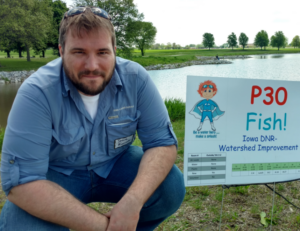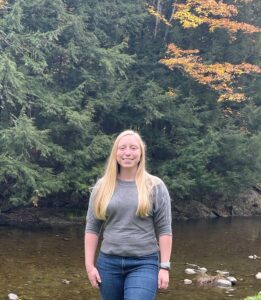
Episode seven of the “Clean Water Pod” podcast explores the 319 Grant Program, established by the 1987 amendments to the Clean Water Act to support state, territory and tribal nonpoint source implementation projects. Host Jeff Berckes speaks with Steve Konrady, western Iowa basin coordinator for the Iowa Department of Natural Resources Water Quality Bureau, and Michaela Lambert, nonpoint source and basin team section supervisor with the Kentucky Division of Water. All three share their experiences implementing nonpoint source funding in their respective states, and discuss the fundamentals of the program, grant eligibility, and working with communities to build support for water quality improvement projects.
“Citizen science is a really valuable education and outreach tool,” said Konrady. “When people get involved in sampling their local waterbody, they tend to be more informed about water quality issues and more passionate for cleaning up their watersheds and waterways – and more ready to work with us on some of that.”

Lambert builds on the theme of community involvement for a strong nonpoint source program. “We’ve worked to develop strong partnerships that have helped us to leverage funds and efforts. Partnering with other organizations that are environmentally oriented like watershed groups and organizations, nonprofits, universities, and other government entities have helped us to pursue success. Ultimately, we’re more effective when we’re working together, and this has allowed Kentucky, with 319 funding, to run our program in a way that we know it’s going to meet our own needs.”
Listen to episode seven here, or tune in wherever you get your podcasts, including Apple Podcasts, Spotify and Google Podcasts.
Follow @CleanWaterPod on Twitter for the latest updates.
About The Clean Water Pod
Through perspectives and stories from across the country, the “Clean Water Pod” explores the challenges and successes of restoring and protecting water quality. Season one of the podcast focuses on the fundamentals of the Clean Water Act.
This podcast is funded by a grant through the U.S. EPA and produced by Flip the Field and NEIWPCC.
Learn more about our work around the Clean Water Act 303(d) program.